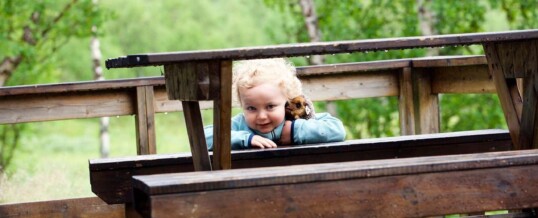
He didn’t even notice!
We often dismiss our young children’s observational skills this way. Did our young daughter notice that she was the only white (or black) child on the playground? Of course not! Did our son happen to observe that all the women in the shower room were naked? Didn’t seem to. How about the man without legs in the wheelchair? Well, she started to stare, but we distracted her and she forgot all about it.
Well, he didn’t say anything
Perhaps we think that children don’t notice these things simply because they fail to comment. Or perhaps we are eager to believe that they don’t notice physical differences such as race or handicap or gender paraphernalia because these subjects make us squirm and we aren’t sure we have the words to adequately talk about them. And of course we would like to think of our children as wholly innocent and accepting, as little Adams and Eves in the blissful Eden of their lives. So we happily hope that they don’t notice.
Of course he notices everything else
But all of us who have tried to walk with a young child from here to there know full well that she notices and wants to touch every bug and blade of grass and passing dog, that the only thing she doesn’t notice, in fact, is how late it is getting as she explores and investigates. So why would we possibly think she wouldn’t observe something so eye-catching and noticeable as breasts or skin color or legs that end at the thigh?
So maybe she does notice
She certainly does. Her job is noticing and she’s a lot better at it than we are. But either because she doesn’t have the language at her disposal yet, or because through our reaction (which she is the world’s foremost expert at noticing) we have indicated that she is not to comment, she does not. So we smile and say, “She didn’t even notice!”
Meanwhile, we may be failing to notice the child’s eyes growing round as silver dollars, and/or her somewhat unusual behaviors afterward as she tries to make sense of what she’s seen. For example, does the only white child on the playground start coloring her hands and face with magic markers? Does the boy exposed to the shower room begin popping in on us when we are dressing and bathing, though he never did before? And does the child who saw the man in the wheelchair start becoming hysterical at the slightest bump or skinned knee?
So what is he thinking?
When we don’t notice and help them out, children must draw on their limited previous experience and their primitive logic in order to make sense of their observations. The conclusions they come to might not only be erroneous, but frightening in their implications. (If I change my skin color, will I be as tough and strong as Joshua? Is there something wrong with my body because it is missing all that hair between my legs? Did it get that way because I did something wrong? If that man in the wheelchair is sick, is his sickness catching? Will I lose my legs too if I touch him or even go near him?)
How do I encourage their questions?
Physical differences exist in our children’s homes, of course, and we make a choice early on about whether or not, and to what degree, to shield him from them. Children who start seeing family members’ naked bodies at an early age will notice, and may be full of questions – spoken and unspoken. How much better to answer these questions ourselves, sometimes over and over again, rather than leave our children to draw their own faulty conclusions.
Sometimes we have no clues except our children’s behavior to guide us, and interpretation can be difficult. But maybe our son has started gawking at us as we undress in a way that makes us feel self-conscious. Or maybe our daughter looks alarmed when she sees the man in the wheelchair, and grabs tightly at our hand. We have to do our own vigilant noticing, and when we sense that one of these “noticing” situations may have become overwhelming or confusing for our child, start asking our own questions. Are you wondering about breasts, and why some people have them and some people don’t? Are you worried about that man we saw in the wheelchair? Gradually their questions will emerge, as you talk together about what they’ve seen.
Sometimes we would actually prefer that our children not notice, because we’re fearful that their questions could occur in public. Heaven forbid that in some quiet waiting room she might ask in her high, piercing voice, “Mommy, is that man going to have a baby? Look how fat his tummy is!” When that happens we can only smile wanly, whisper to her that we’ll answer her question later, and hope that the man with the paunch has a sense of humor. Later we can explain about women being the only ones who get pregnant, and maybe also introduce the idea of sensitivity about other people’s feelings. We will in no way scold her for her questions, however, but encourage her to ask more.
It’s worth the risk. Notice what your children are noticing, because they most certainly are.
SEP
2023


About the Author: